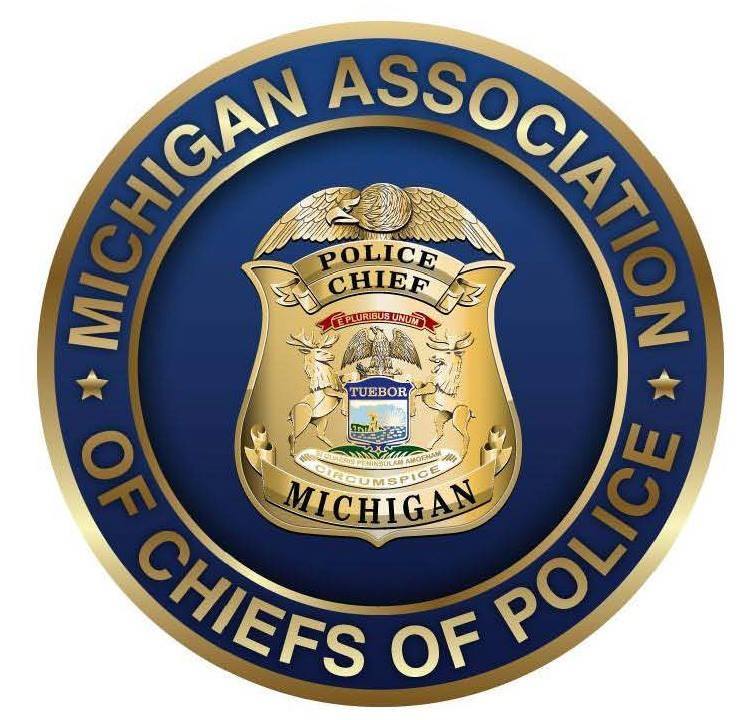Contact Us
To provide feedback on the Community Policing Dispatch, e-mail the editorial board at CPDispatch@usdoj.gov.
To obtain details on COPS Office programs, publications, and resources, contact the COPS Office Response Center at 800-421-6770 or AskCopsRC@usdoj.gov

U.S. Department of Justice
Office of Community Oriented Policing Services
Washington, DC 20530
 In 2016, the Michigan Association of Chiefs of Police (MACP) sought a strategic approach to enhancing policing standards across the state. This vision led to the creation of the Michigan Law Enforcement Accreditation Program—a progressive, proven method for law enforcement agencies to evaluate and elevate their performance and service. The core of the program lies in the voluntary adoption of clearly defined standards that reflect professional objectives. Agencies undergo an in-depth self-assessment to determine how their existing operations align with these objectives. Once these procedures are implemented, a team of trained assessors verifies the successful application of the relevant standards.
In 2016, the Michigan Association of Chiefs of Police (MACP) sought a strategic approach to enhancing policing standards across the state. This vision led to the creation of the Michigan Law Enforcement Accreditation Program—a progressive, proven method for law enforcement agencies to evaluate and elevate their performance and service. The core of the program lies in the voluntary adoption of clearly defined standards that reflect professional objectives. Agencies undergo an in-depth self-assessment to determine how their existing operations align with these objectives. Once these procedures are implemented, a team of trained assessors verifies the successful application of the relevant standards.
The objective from the outset was not only to establish Michigan-specific standards that guide agencies toward professional practices but also to ensure the program remained attainable and affordable, especially for smaller departments.
Recognizing the value of accreditation, the Michigan Sheriffs' Association (MSA) joined the program in 2020, further strengthening the initiative’s reach and credibility. The program is governed by a diverse Commission of Chiefs of Police, Sheriffs, and Civilian Commissioners, with daily operations overseen by the Program Director and supported by an Accreditation Specialist.
The Michigan Law Enforcement Accreditation Program has seen significant growth and support from a wide array of stakeholders, including law enforcement, risk management providers, and elected officials at all levels of government. Residents across the state have also expressed strong backing for the program.
 As of September 2024, the program has garnered participation from 143 law enforcement agencies throughout Michigan, representing municipal, county, college/university, and state departments. Among them, 88 agencies have achieved full accredited status. These agencies range in size from just three to more than 2,700 full-time officers, demonstrating the program’s broad applicability. With the addition of 40 to 50 new agencies annually, it is anticipated that more than 200 agencies will be involved in the accreditation process by next year. While this growth is encouraging, the program still has much work ahead.
As of September 2024, the program has garnered participation from 143 law enforcement agencies throughout Michigan, representing municipal, county, college/university, and state departments. Among them, 88 agencies have achieved full accredited status. These agencies range in size from just three to more than 2,700 full-time officers, demonstrating the program’s broad applicability. With the addition of 40 to 50 new agencies annually, it is anticipated that more than 200 agencies will be involved in the accreditation process by next year. While this growth is encouraging, the program still has much work ahead.
Michigan is home to 573 law enforcement agencies, spanning 83 counties and comprising more than 18,000 sworn officers. A significant portion of these departments—74 percent—employ fewer than 25 full-time officers, and 55 percent have fewer than 15. Despite the overall growth of the accreditation program, participation among smaller agencies, particularly those in Levels A (0–10 officers) and B (11–25 officers), remains limited, with only about 10 percent involvement. Financial constraints often prevent smaller agencies from pursuing accreditation, despite their leadership recognizing its value.
This presents a unique challenge: How can the program continue to expand—especially among smaller agencies—while meeting the increasing demands of program management?
To address this challenge, the MACP successfully secured a grant from the U.S. Department of Justice’s Office of Community Oriented Policing Services (COPS Office) in 2022. This funding aims to increase participation among smaller agencies and provide resources for their growing administrative demands. Specifically, the grant enabled the creation of a part-time Accreditation Specialist position to support the day-to-day operations of the program.
Since the implementation of the grant, the number of small agencies (Levels A and B) participating in the program has increased from 39 to 59. In addition, the number of accredited agencies has nearly doubled, rising from 47 to 88. The program has also seen 23 agencies successfully re-accredited during this period. Today, participation in the program represents 70 percent of all municipal officers in Michigan.
The addition of the part-time Accreditation Specialist has been pivotal to managing the program’s growth. By handling many administrative and clerical tasks, this role allows the Program Director to focus on strategic initiatives such as program expansion, training for Accreditation Managers and assessors, standard interpretation, and organizing conferences and presentations.
In the past eight years, the Michigan Law Enforcement Accreditation Program has made significant strides in shaping professional policing practices across the state. It has reduced liability, enhanced the delivery of law enforcement services, and contributed to more effective, efficient policing—ultimately serving the communities of Michigan more effectively.
Subscribe to Email Updates
To sign up for monthly updates or to access your subscriber preferences, please enter your email address in the Subscribe box.






